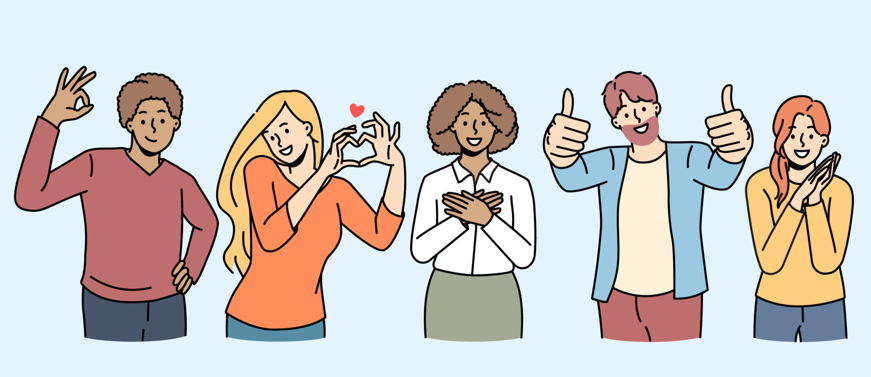Body Language
These questioning techniques are not always practical in a conversation and you should always listen to the customer. Actively listening, which means giving 100% of your attention to that person and understanding what they have said to you without making assumptions, may negate the need to ask all of the questions since they may have already provided some of the information in their previous answers. It is also important to ensure that you don't miss a vital piece of information which helps you to decide how to proceed.
Non-verbal communication or body language can also provide a lot of information. If a person is feeling pain they may be holding a part of their body or expressing pain in their face. If a person thinks they are going to be challenged about purchasing a type of medication, perhaps because they are abusing it, they could be evasive and not want to make eye contact with you. If a child is feeling ill they are often quiet and appear lethargic whereas usually they will be running around. Your own body language also demonstrates to the customer that you are actively listening. Maintaining eye contact, nodding or repeating key pieces of information will all demonstrate you are concentrating on what the customer is telling you.
Think about whether you need to use all of the questions during a sale. If a customer comes in for advice about a condition and they are not sure what treatment they require, you will need to gather as much information as possible to allow you to give the correct advice and potential treatment, if required. However, if a customer asks for a specific product, for example paracetamol for a headache, you are unlikely to ask all of the questions as you just need to ascertain that the headache isn't due to an underlying medical condition and that the customer isn't in a high risk group. You should always reaffirm the dosage instructions and recommend that they return if they experience persistent headaches whilst observing their body language for understanding.
If you don't ask high quality questions you are not likely to get high quality answers and possibly not the full story. Asking the right question in the right way is at the heart of effective communication and by doing this you can gather information more effectively.


